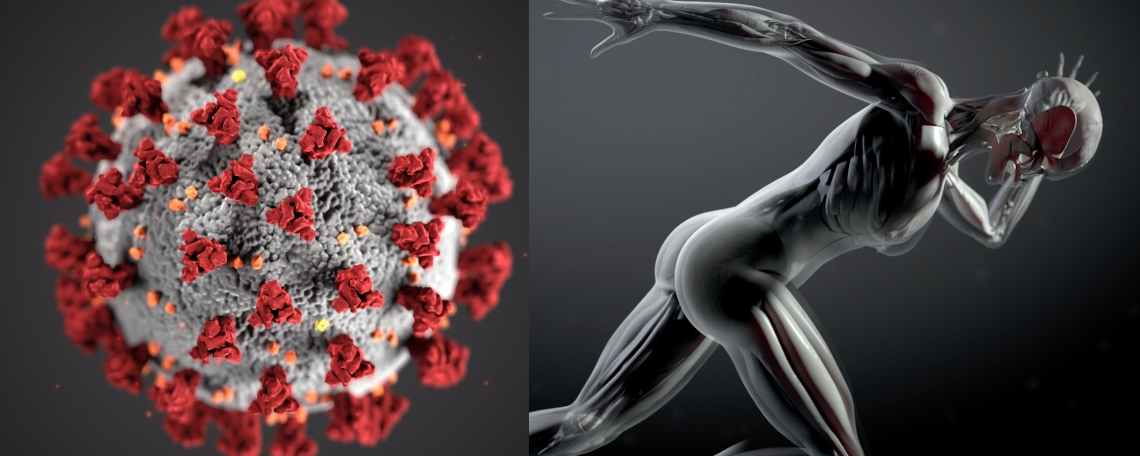
This sixth research effort aims to identify additional drug targets in human hosts and to build models to attempt to predict which patients are likely to be at high risk. The SARS-CoV-2 virus interacts with dozens of proteins in the human host, initially to enter the cell and later to suppress the cell’s defences and to harness the cell’s machinery for replication. Human proteins that interact with the virus are potential therapeutic targets, as if we can block those interactions via a drug, we may slow down or stop the viral life cycle. Host response analysis also tries to identify the specific mutations or cellular states of the host that determine the severity of infection. This work involves building human protein interaction maps as well as studying data from other types of virus infections to identify key response signatures for SARS-CoV-2 that might be useful in predicting outcomes. This effort feeds targets to the drug discovery effort and also supports model building to predict patient risk/outcome.
The methods used to target host response interactions are similar to those used in the drug discovery work. The difference is essentially that the proteins and protein complexes targeted here stem from interactions between the viral proteins and host organism proteins.
If you wish to contribute and have interests in this area, please get in touch by emailing Dr Hugh Martin (h.s.martin “at” ucl.ac.uk) with your name, institution, a one-paragraph summary of your area of expertise, and up to 5 of your most relevant publications, making clear which of the 6 areas of coronavirus research you are seeking to contribute to in this consortium.
CompBioMed-Coronavirus Pages:
CompBioMed and Coronavirus
The Consortium on Coronavirus
CompBioMed Partner Activity
Call for Contributions
Coronavirus Research Resources
Coronavirus Blog
Areas of Research:
Computational Drug Discovery
Epitope Analysis
Drug Toxicity
Computational Epidemiology
Virus Evolutionary Analysis
Host Response Analysis

